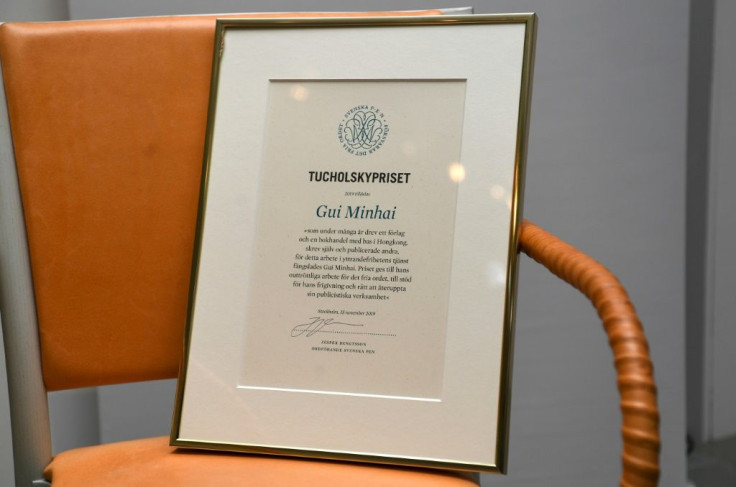Free Speech Award For Jailed Hong Kong Publisher Gui Minhai Angers Beijing
Swedish PEN, a freedom of expression organization, recently announced that it would award Gui Minhai, a Chinese-born scholar and Hong Kong book publisher, the Tucholsky prize. The award is named after the German writer Kurt Tucholsky who left Germany for Sweden in the late 1920s. This announcement did not sit well with Beijing and the Chinese Communist government.
China has warned Sweden that it will “suffer the consequences” if Gui is awarded the prize but the Swedish Prime Minister, Stefan Löfven, rejected the threats.
Gui, who is a Swedish educated scholar and naturalized Swedish Citizen, is one of five Hong Kong-based publishers and booksellers who disappeared in 2015 after printing books critical of the Chinese government.
The story begins in 1999 when Gui left Sweden to return to China. He moved again to Hong Kong in 2006 where he set up his publishing business, but he may have moved to escape the consequences of his involvement in a 2003 drunken driving case that killed a young woman.
In 2016, Gui appeared in custody on Chinese state television and this is the point at which China’s version of events diverges from what free speech advocates believe happened. On the Jan. 17 TV airing, Gui appeared to be weeping while saying he had returned to China to surrender to police after fleeing the fatal drunk driving incident. It appears to those skeptical of the Communist regime that Gui made the confession under duress.
He was released from custody in 2017 under the condition that he stay in China but was arrested a year later when he was snatched from a train headed to Beijing by 10 suspected plain-clothed state security agents. Chinese authorities claimed the trip was an attempt to escape rather than the medical appointment as Gui claimed.
Once again Gui was paraded in front of Chinese state-run TV and gave another “confession” even castigating Sweden for using him as a political pawn against China. He is presumed to still be imprisoned in an unknown location in China.
The Chinese embassy in Stockholm reacted to Sweden’s decision to award the prize to Gui, saying it was “not only a sheer farce, but also a mockery of genuine freedom of speech and a slap in the face of Swedish PEN itself”, born out of an “ulterior political agenda and consistent biases and hostility against China”.
The embassy added, “As is known to all, Gui Minhai is a criminal who has committed serious offenses in both China and Sweden. He is a lie-fabricator and rumor-spreader.”
The prize ceremony took place Friday, an empty chair on stage marked Gui’s absence. Sweden PEN (originally for Poets, Essayists, Novelists) is a branch of PEN International formed in London in 1921. Former recipients of the award include Salman Rushdie and Belarusian Nobel laureate Svetlana Alexievich.

© Copyright IBTimes 2024. All rights reserved.











